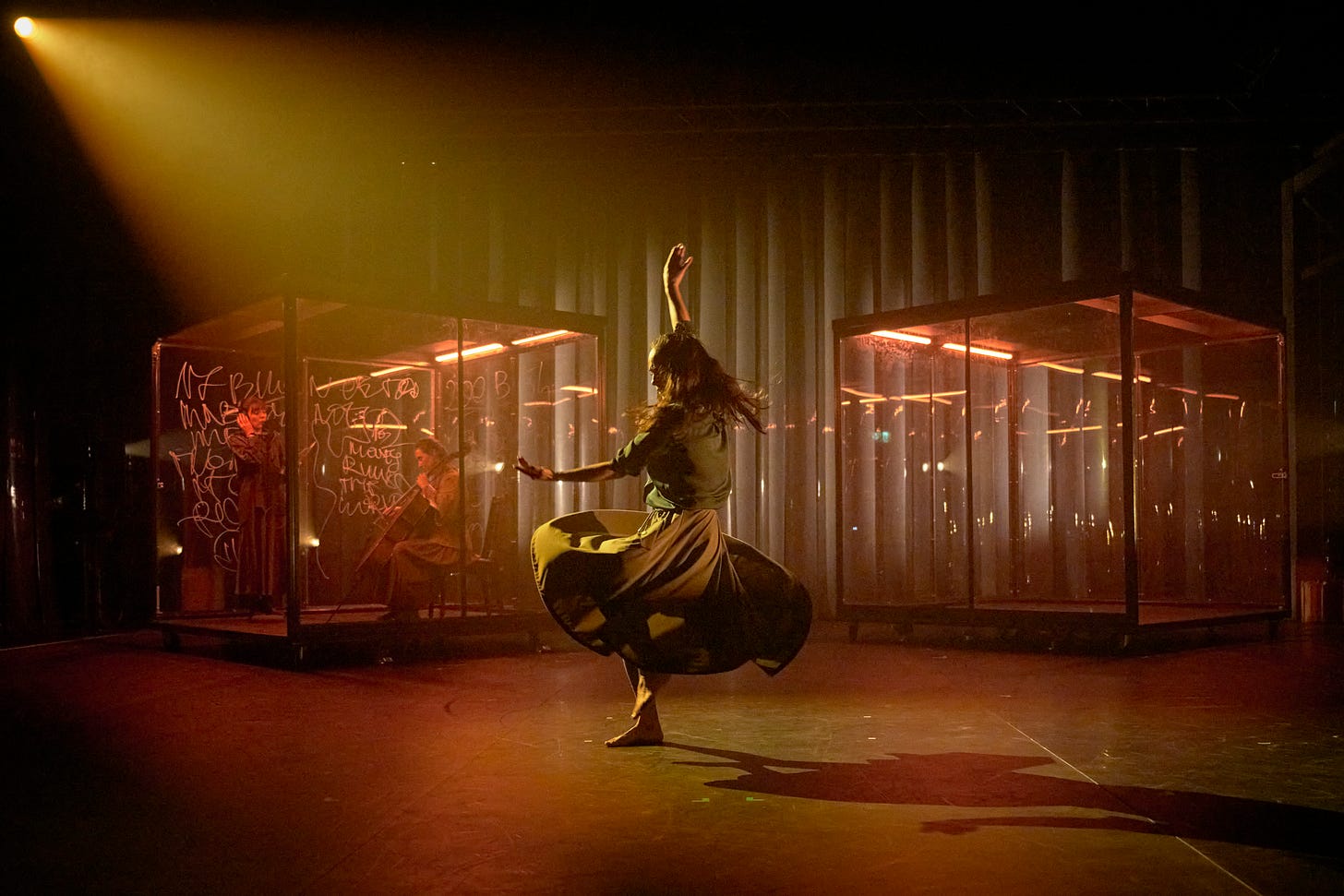Palimpsest: A century spent physically apart
In a difficult first 100 years for the nation, CoisCéim shows life dancing on.
The Complex, Dublin
★★★★☆
At the end of this decade of centenaries, after all the looking back on a violent revolutionary period that came at great personal cost, its inherited traumas trickling-down through generations, it’s not implausible to wonder: has it been a century of pain?
There’s also risk of it being a topic already thoroughly covered. CoisCéim’s new dance Palimpsest arrives at a time when audiences may feel like they have been living in the past for some time. (Since ANU’s Thirteen 11 years ago, at least). Is anyone still in the mood to look back?
Choreographer David Bolger seems admirably set on a fresh approach. His production, before ushering us to our seats, insists on bringing us into the revelatory expanse of The Complex stage, to see up-close a bittersweet solo by Lee Clayden as a man sitting alone amidst a pile of chairs, restlessly reorganising them into contrived arrangements. The slapstick of his clumsiness is fun but there is also the lingering question of empty chairs, and a suggestion of absent company.
In a dance about history being reviewed and annotated, fans of CoisCéim are encouraged to see subtle references to the company’s own back catalogue – whether in glimpsed storage boxes labelled with names of past shows, or seeing Bolger return to the same intimacy of early site-specific dances such as Hit and Run (1997), fashioning a similar kind of collision course with history as in Reel Luck (1995), or blasting Philip Lynott again after Back in Town (1997). As the starting point of a familiar historical narrative in Palimpsest, he chooses the looting scene from The Plough and the Stars (a play he recently directed movement for), in which the city inhabitants close to the violence of the 1916 Rising are seen as two men fighting over a pram containing goods. In a possible self-portrait of the gay choreographer, each man agrees to steer the pram together, almost like a couple, before being halted in their tracks by a kind of Cathleen Ní Houlihan (Máire Ní Ghráinne), embodying a hostile nation with other plans.




